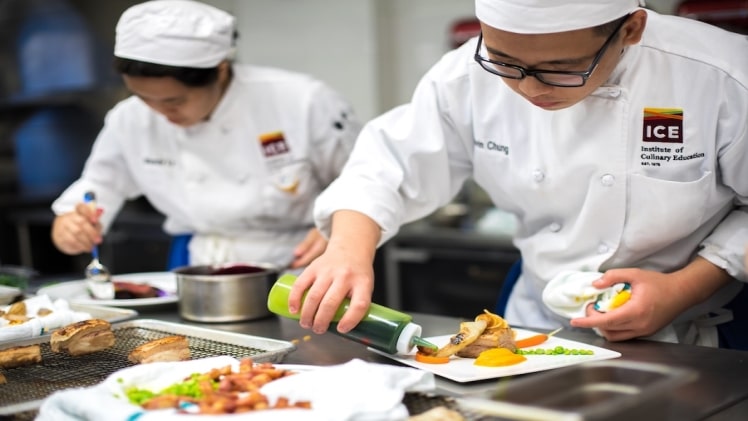Few occupations allow you to express your ingenuity, ability, and passion, like the culinary arts. Chefs create delectable food, frequently serve as restaurant managers, and give excellent customer service.
Do you enjoy cooking—the ingredients, the presentation, and the taste? While culinary school may be fun and incredibly rewarding, it can also be a demanding experience that will put you to the test emotionally and physically like nothing else.
As a result, it’s critical to understand what you’re getting yourself into. If so, consider attending a cooking school.
What are the culinary arts?
The culinary arts are the arts of food preparation, cooking, and presentation. Culinary arts professionals use extensive technical expertise to make and serve high-quality cuisine.
Those who can combine creativity, multitasking, attention to detail, and the willingness to work well with others are well-suited for a career in culinary.
A profession in the culinary arts also necessitates training to acquire the technique, accuracy, and creative qualities required for success. Are you undecided about attending cooking school? So, here are some things you should be aware of before attending cooking school.
A culinary school is much more than cooking.
A significant portion of cooking school is devoted to learning the cooking skills and methods necessary for becoming at ease in the kitchen. As a culinary student, you could learn how to properly handle a chef’s knife, chop vegetables into uniform portions, and make a delicious soup.
Don’t expect to spend all your days in the kitchen preparing ingredients. In addition, students can learn about kitchen management, food safety, entrepreneurship, and menu planning.
By being acquainted with these principles, you may feel more at ease communicating with employees, handling funds, creating new meals, and combining ingredients.
Make use of your experienced culinary tutors.
Students can benefit from start-to-finish teaching when making recipes while attending cooking school. Chefs from the world may be your instructors, which is why they are respected in the profession for their culinary accomplishments, compassion, and humility.
Learning from such brilliant professionals may be intimidating at first, but you may find that your professors are there to assist you in achieving your path towards becoming a chef. So, when you start cooking school, don’t be afraid to ask your questions in class.
You should find a balance between structure and creativity.
While inventive meals frequently create headlines and attract customers, every excellent chef understands that organization’s structure is the backbone that supports these meals.
You will immediately understand that organization is critical to your success. An organization can help you achieve, whether setting up your workstation before you start making egg rolls or juggling the responsibilities of schoolwork, family, and social life.
Fortunately, a cooking school may provide a perfect atmosphere for establishing or reinforcing the organizational skills that many successful chefs have. Chefs must be organized and inventive.
While it may appear illogical, an ordered workplace and grasp of the basics may assist foster creativity.
A cooking school is nothing like a professional kitchen.
A kitchen, unlike culinary school, is hot, busy, and stressful since you are attempting to serve people in the shortest period.
You will be on your feet in a kitchen for at least 12 hours a day, unlike the short hours you spend in culinary school each day.
Since the kitchen may be a harsh place, cultivate a thick skin.
When individuals are overheated, exhausted, and sleep-deprived, they are not at their best and can say things that would make grown men cry. And, som instance, some chefs hurl objects at their cooks, so you’d best be quick on your feet.
A professional kitchen is not for you if you can’t stand being screamed at, belittled, and made to feel inadequate regularly.
It won’t make you a chef right ahead.
No culinary school, no matter where you go, will offer you the golden ticket to becoming a chef. You’ll become a great cook, but it is about following the principles. You’ll be able to continue learning and pushing yourself to achieve culinary brilliance.
But the outstanding feature of a culinary degree is that it can be used for many things. For example, you can acquire a position in most top restaurants even if you are not a head chef. Or you might get into catering or writing—the possibilities are boundless, and having a culinary degree makes it simpler to break in.

